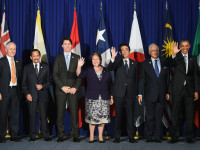The U.S. government’s attempt to invoke a centuries-old law to obtain a court order to require Apple to create a program that would allow it to break the security safeguards on the iPhone used by a San Bernardino terrorist has sparked an enormous outcry from the technology, privacy, and security communities.
For U.S. officials, a terrorism related rationale for creating encryption backdoors or weakening user security represents the most compelling scenario for mandated assistance. Yet even in those circumstances, companies, courts, and legislatures should resist the urge to remove one of the last bastions of user security and privacy protection.
My weekly technology law column (Toronto Star version, homepage version) argues that this case is about far more than granting U.S. law enforcement access to whatever information remains on a single password-protected iPhone. Investigators already have a near-complete electronic record: all emails and information stored on cloud-based computers, most content on the phone from a cloud back-up completed weeks earlier, telephone records, social media activity, and data that reveals with whom the terrorist interacted. Moreover, given the availability of all of that information, it seems likely that much of the remaining bits of evidence on the phone can be gathered from companies or individuals at the other end of the conversation.











